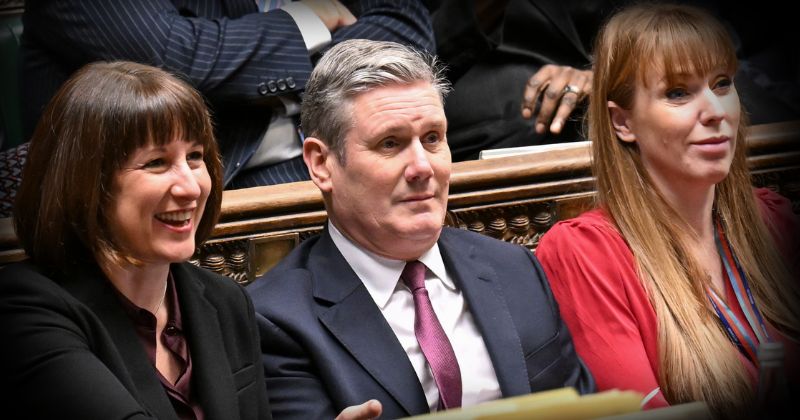

By George Banks
AFTER 14 YEARS of economic misery under the Tories, it might have been expected that a Labour government would at least spare the poorest the cost of their obsession with ‘balancing the books’. But despite promising ‘change’, Starmer and Reeves have devoted their efforts to dampening these expectations.
Labour’s failure to scrap the cruel two-child benefit cap, despite their majority of 167 MPs, was a sign of their priorities in the period ahead. Out of 411 Labour MPs, only seven voted to scrap the cap: John McDonnell, Zarah Sultana, Richard Burgon, Ian Byrne, Apsana Begum, Imran Hussain and Rebecca Long-Bailey. Removing the cap would only cost £1.3bn per year, and would lift 250,000 children out of poverty.
But the worst is yet to come and that’s why Starmer lost no time in suspending his left-wing critics. His speech on 27 August promised a ‘painful’ Autumn Budget—instead of desperately needed investment in public services, he promised that things would ‘get worse before they get better’ and that he would make ‘big asks’ of the country. Mimicking George Osborne in 2010, Starmer posed spending cuts as being in our long-term economic interests.
Cuts, cuts, cuts
Part of Labour’s plan is to save £1.4bn by removing the winter fuel payment from approximately 10 million pensioners who don’t receive means tested benefits. Fuel prices are at an all time high and are set to rise again in October, and private energy companies are raking in the profits, but instead of taxing these millions, or nationalising the energy companies to keep prices under control, Starmer wants to put the burden on hard up pensioners.
Labour’s austerity budget also promises cuts to other departments, including £1.3bn to the Health Department and £1bn to Education. Even under Cameron and Osborne, these departments were nominally protected, although they did suffer a real terms squeeze. It is clear that Labour will make no attempt to address the social care crisis—in July the government cancelled planned social care reforms.
Reeves has made clear where her priorities lie—meeting with the assembled representatives of British capital on 29 August where she promised to work with big business to ‘co-design policies on growth’ for the budget. The ‘iron chancellor’ promised to ‘lead the most pro-growth, pro-business Treasury in our history’.
The sum total of all of the miserly savings announced so far is £4.3bn. With Labour claiming a £22bn black hole in the Treasury, these cuts merely foreshadow the attacks to come. Last year’s strike wave across the public sector was about more than just pay—in many places the key demand of workers was investment into the country’s creaking services. Unite has disparaged Labour’s plans as ‘austerity 2.0’. They, and other public sector unions, need to move from words to action. Labour have made it clear whose side they’re on—the bosses. Workers need to stand together to resist the government’s attempts to slash our living standards even further.